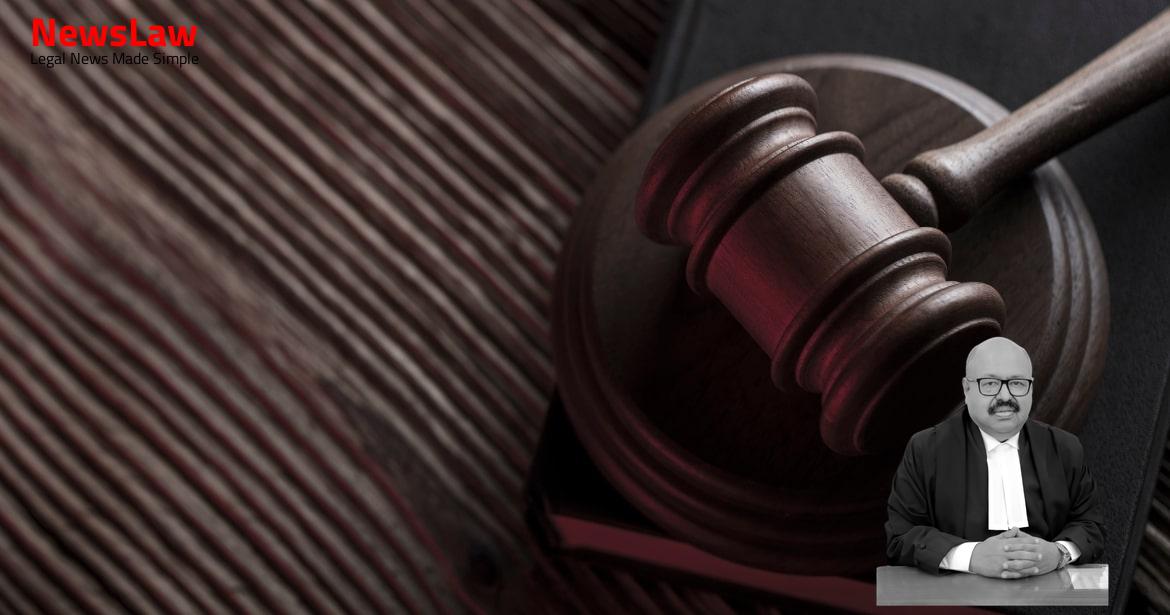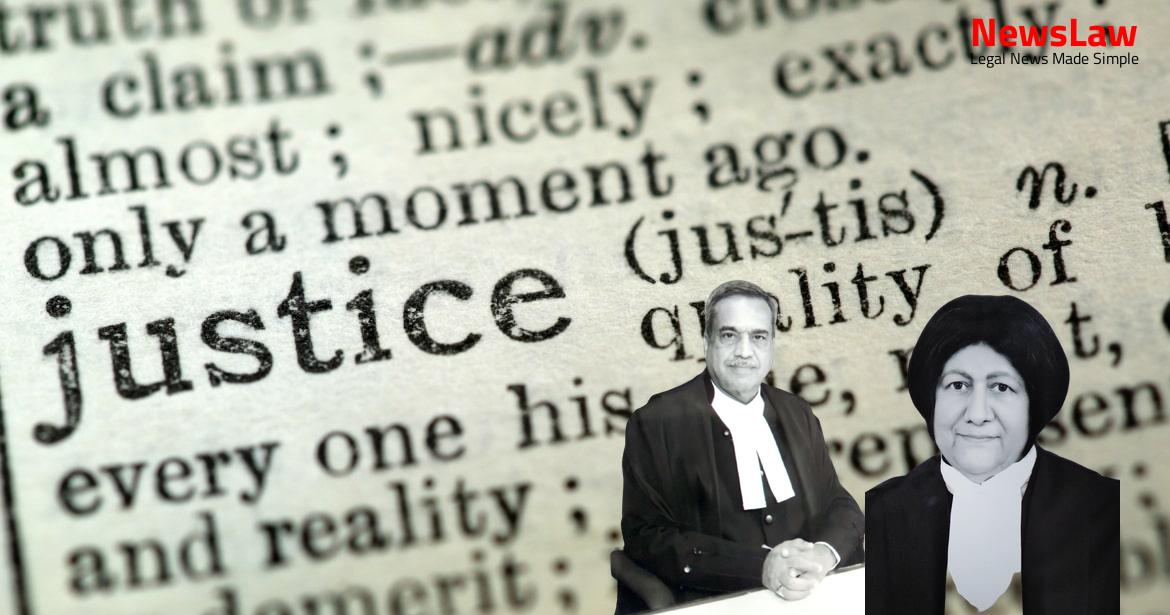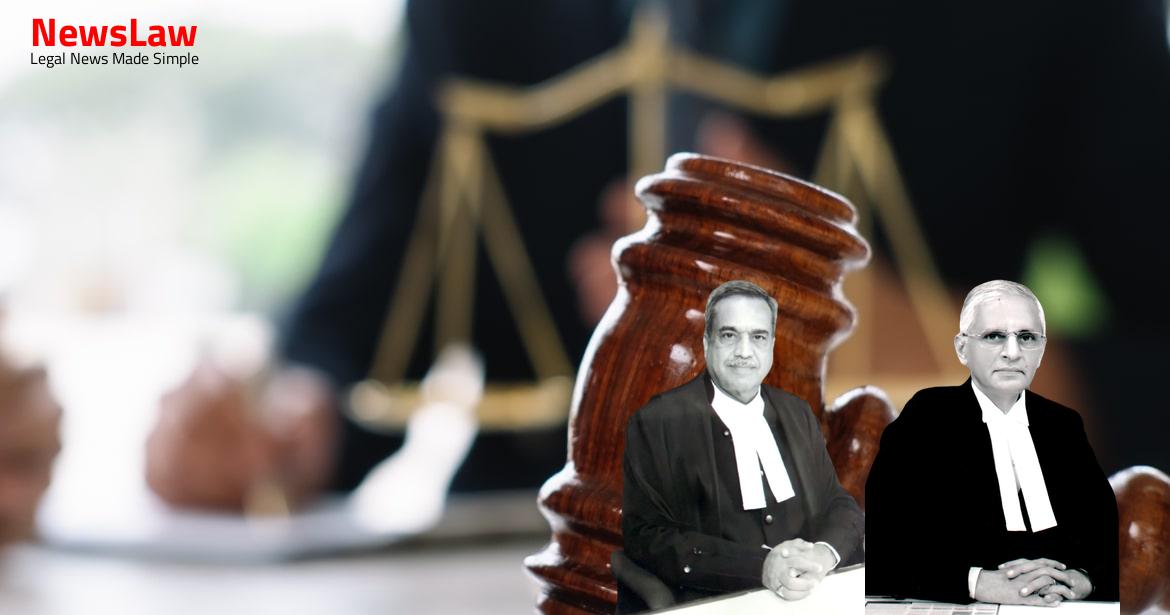Explore the detailed legal analysis undertaken by the court in a recent case concerning the determination of compensation for a tragic accident. The court’s assessment of income, consideration of documentary evidence, and treatment of dependents are examined closely, highlighting the nuances of legal interpretation in such matters.
Facts
- The accident took place on 27.02.2016 in Adarsh Nagar Police Station limits in Ajmer involving a truck trailer bearing no.RJ-14-GD-1156 driven by the 1st respondent.
- The accident resulted in the death of Shivpal, who was driving the vehicle of the deceased at the time of the collision.
- The Tribunal found the accident to be caused by the rash and negligent driving of the 1st respondent.
- The claimants, who are the parents of the deceased, filed for compensation under Section 166 of the Motor Vehicles Act, 1988.
- The claimed compensation amount was Rs.93,08,000/- with an interest rate of 15% per annum.
- The deceased Shivpal held a heavy vehicle driving license and was earning Rs.15,000/- per month.
- The appeal before the High Court was filed by the appellant-parents only.
- The Tribunal awarded Rs.10,000 each to the appellant-parents of the deceased
- The total compensation of Rs.10,99,700 was awarded by the Tribunal, including consortium of Rs.40,000 to the wife and minor child
- The High Court, in its judgment dated 06.07.2018, dismissed the appeal
- The Tribunal’s judgment dated 25.11.2017 awarded the total compensation with interest at 6% p.a.
Also Read: Challenging Legal Analysis in 1989 Scheme Eligibility Case
Arguments
- Learned counsel for the appellants argues that the deceased was earning Rs.15,000/- per month, but the Tribunal awarded compensation based on an income of Rs.5746/- per month.
- Respondent no.4 stated that the deceased was indeed earning Rs.15,000/- per month.
- The appellants claim entitlement to compensation for ‘loss of consortium’.
- The Tribunal erred in not considering the evidence of the deceased’s actual income and instead relied on minimum wage for skilled labor.
- The finding that the appellants are not dependents due to living separately was also contested.
- The High Court dismissed the appeal without considering the various grounds raised by the appellants.
- The claimants argued that the deceased was earning Rs.15000 per month and had a heavy vehicle driving license, which was proven through evidence.
- The Tribunal had used the minimum wage notified for skilled labor in 2016 to determine the deceased’s income, but did not consider the claimant’s testimony.
- In the absence of a salary certificate, using the minimum wage notification as a basis for income determination is not absolute.
- Some guesswork is required in the absence of documentary evidence to estimate the deceased’s income.
Also Read: Legal Analysis of Unilateral Cancellation of Registered Sale Deed
Analysis
- Applying a multiplier of ’16’ resulting in compensation of Rs.14,33,664/- for the claimants.
- Guesswork for assessing the income of the deceased should be based in reality.
- Already paid amount of Rs.10,99,700/- for loss of dependency.
- Appellant-parents entitled to differential compensation of Rs.3,33,964/-.
- Non-production of documentary evidence shouldn’t lead to adoption of lowest tier of minimum wage.
- Oral evidence of the wife indicating deceased’s monthly income of around Rs.15000/- considered valid.
- 32-year-old deceased on fixed salary warrants a 40% enhancement towards loss of future prospects.
- In the case of Minu Rout & Anr. v. Satya Pradyumna Mohapatra & Ors., the salary of the driver of the light motor vehicle was considered to be Rs.6000/- per month for calculating loss of dependency.
- The finding that parents cannot be treated as dependents by the Tribunal contradicts the judgment in Sarla Verma (Smt) & Ors. v. Delhi Transport Corporation & Anr.
- The judgment in Kirti & Anr. v. Oriental Insurance Company Limited, cited by the respondent’s counsel, was deemed not applicable due to the specific facts of the case and the evidence presented.
- Based on the evidence, the income of the deceased was calculated to be Rs.7467/- per month, which was increased to Rs.8000/- per month taking into account the demand for skilled drivers.
- According to the judgment in Magma General Insurance Company Limited v. Nanu Ram @ Chuhru Ram & Ors., the appellants are entitled to parental consortium of Rs.40,000/- each.
Also Read: Legal Analysis on Special Procedures and Dismissal Orders in Police Force Case
Decision
- The appeal is allowed and the appellants are entitled to further compensation of Rs.3,33,964 on the grounds of loss of dependency and consortium.
- Additional compensation of Rs.40,000 each is granted to the appellants.
- Total compensation to be paid is Rs.4,13,964 with an interest rate of 6% per annum from the date of filing the claim petition.
- A deduction of 1/3 from the deceased’s income is to be made for personal expenses.
Case Title: CHANDRA @ CHNADA @ CHANDRARAM Vs. MUKESH KUMAR YADAV (2021 INSC 593)
Case Number: C.A. No.-006152-006152 / 2021



